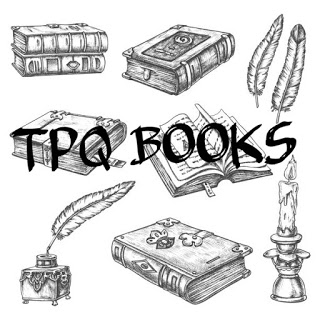Places that produce the future architects of our society and are ground zero for cultural battles (for good or for bad), they are ripe material for fiction. And, with the recent cultural battles now dominating mainstream discourse, it’s good to see writers stepping up and tackling it head on.
Described as “…a tragicomic glimpse at America's culture war and social atomization…” which “…offers a cutting and satirical look at the rise of the alt-right and their antifa counterparts, the incel mindset, and the factors that radicalize young men”, Dragon Day is a sincere attempt to document the divisions within society and warn us where they may lead to.
The introduction builds things up appropriately and even gives us the odd red flag that hints at a genuinely fascinating narrative.
On April 17th 2015, a bomb was placed in . . . the centrepiece of Lockden’s annual ‘Dragon Day’ parade. It detonated . . . killing 23, injuring another 46 . . . constructed by a quiet undergraduate named Toby . . . himself blown to pieces . . . I base the following narrative on the brief but revelatory time I spent with Toby. I have included first-person accounts where my own experience intersects with the plot.
So not only do we know the conclusion, but we also know that the narrator, called Charles, also played a role in the proceedings as well. We immediately begin to speculate not only what he did, but also whether he is a trustworthy narrator, due to the desire to splice his own story into the novel.
Alternating between Charles’ perception of Toby’s history, as well as Charles’ own tale, the reader is presented with a journey. One where an awkward, isolated loner (Toby) goes to university and falls under the charm of a charismatic professor named Thomas Wallingford.
Known for his left-wing views and gobbledygook views on literature (the ‘phallic paradigm’ is the notion that ‘the phallus is what gives language meaning’ apparently), Wallingford has a cult of personality among the students but only a select few are allowed into his inner circle. Charles and Toby are part of that circle. Quickly discovering that Wallingford is not who he claims to be, Charles rejects everything he has learnt up to that point and goes on a journey of self-realisation. Toby is both fascinated and repulsed by what he encounters but carries on regardless.
Dragon Day is a serious and noble attempt to examine the socio-political landscape that has been ongoing in American life for the past ten years. The fact that it doesn’t succeed isn’t all the fault of the author, as I believe that the nuances and contradictions of the culture war don’t translate well to the standard novel (‘standard’ meaning linear narrative with a conventional narrator).
What the book does have in its favour is a brisk pace and a genuine desire to explore the destructive nature of identity politics (especially in the context of a university system that is designed to produce new recruits for the workforce) as well as an intriguing scenario. However, the characters are two-dimensional (Toby’s opening chapter begins with him worrying that his meat and two veg don’t measure up to standard), sprout lines that read like they’ve come from Reddit and their arcs aren’t very convincing for a variety of reasons. Even the evil professor has nothing going for him except for cliched esoteric beliefs.
The end result is more akin to a pot boiler (albeit an enjoyable one) than a literary achievement, which is a shame as there are the seeds of a good novel scattered throughout the book. It really needed another run through Microsoft Word as well as less reliance on cliches to make its point.
Enjoy, but don’t expect much.
Matthew Pegas, 2021, Dragon Day. Terror House Press. ISBN-13: 978-1951897499
⏩ Christopher Owens was a reviewer for Metal Ireland and finds time to study the history and inherent contradictions of Ireland. He is currently the TPQ Friday columnist.







Christopher, again, another journey off the beaten track. You fulfil such a valuable function - and not merely for this blog which obviously benefits from having your input.
ReplyDeleteAM,
Deletethanks very much for the compliment. Greatly appreciated.
Considering the nature of the Quill, it's only right to try and highlight material that might not be on everyone's radar (even if, in this case, the material is below par).
I think it is important to the reader and the author of the work being reviewed that they are made aware of the impact a work has: why would the author improve if nobody suggests they should? You bring a width and depth to the Quill.
Delete